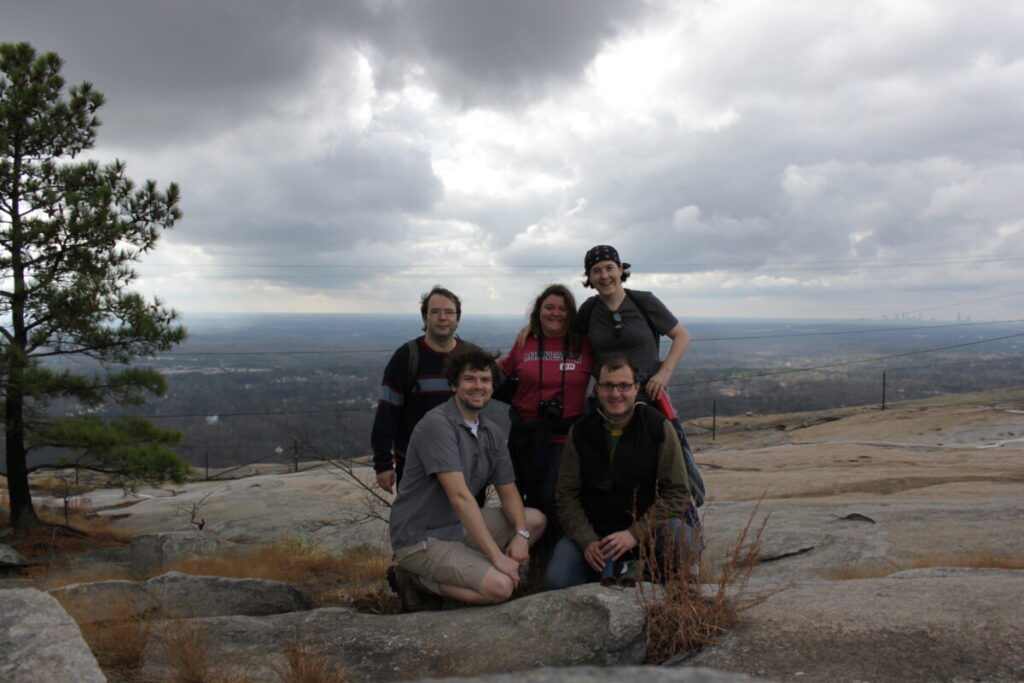
- Brief Introduction
- Reminder for everyone to apply for graduation this week. Deadline is Friday, Mar. 3.
- Beginning of Class Writing Assignment
- Click on the heading of this blog post title above–“Week 4,” scroll down to the comment area, and write at least 250 words in response to this week’s readings. You can summarize the readings, you can relate the readings to your own experience or something else you have read or learned about, etc. Any writing of 250 words or more that are related to the readings are fair game for this weekly assignment at the beginning of class.
- Post your comment after 15 minutes even if you don’t reach the 250 word minimum threshold.
- Why we are doing this: It helps you organize your thoughts before discussion and it gives you regular writing practice.
- Discuss the readings assigned for Week 4.
- Discuss internships
- Where is everyone at? (Amy: Abby?) (Kahini: charity?) (Sergio:?) (Maria:?)
- Write It Forward
- We’ll spend time during class to let everyone apply for IPG Health’s Write It Forward Internship Program.
- Weekly Log
- Remember to add an entry to your logbook for each week until the end of the semester and keep all of your logs in a single file (Google Doc, Word docx, OpenOffice odf, etc.). Include the first date of a given week for each entry at the top of the page. Write at least 250 words about your current or past experience as appropriate. For example, if you are currently in an internship, your logs should record your experiences, thoughts, challenges, solutions, etc. that you find significant each week. Or, if you have completed your internship, your logs can be about experiences, projects, interactions with people in the workplace, challenges, solutions, etc. based on your past experience. And, if you are continuing in a new internship for additional experience, you can write about that, too. The point is to write at least 250 words per entry with one entry per week about your experience in the internship.
- Why we are doing this: It helps you articulate your work experience so that you may better reflect on, consider, remember, and act on those experiences as you transition into the workplace. Additionally, it gives you extra writing practice, which research shows will automatically improve your writing ability.
- Review readings and homework for next week.




In the article, “In Pursuit of a Rewarding Career” by Avon J. Murphy who discusses the obsession to read all genres and thus transitioning into a technical communicator. After being a mathematics major or pursuing being an English High School teacher didn’t seem to work out, they realized the closest study of literary texts fascinates them. They began as an Assistant and associate professor of Languages and Literature at Ferris State University, then an Associate Professor and eventually a Technical Writer at Washington State Legislative Service Center from 1989-1997. There were some in between and from 1980-present he is Freelance editor, writer, and designer on client’s projects. He refers to himself as a resource. From reading this it emphasizes on how you should be ambitious and learn new things and continue to do so regardless of experience or experience. He has a vast amount of experience and yet ends with “I think I’ve done all right.”
The second text provided for this week’s reading was “Conflict at Work? Empathy can Smooth Ruffled Feathers.” This relates to the previous text provided about coming back to an office space and having the understanding that the environment is changed. Professor Adams found misunderstandings are between victims and people of harm. The study was interesting because the individual with the more mediocre task felt the resent for someone they did not know and for simply picking an option between the two. Both sides should acknowledge the issue and offer forgiveness once it is understood.
The last text given was also a New York Times article, “How To Answer Tricky Personal Questions at a New Job.” In this field as well, the social component is important and promotes harmony and good health. Gossip is common so when asked a question about someone maintain professionalism. Similarly to a clinical setting in terms of when interacting with people and co workers you need to maintain decorum. Despite the overwhelming tiredness during the first week, don’t let the invitation dry up and join your coworkers for lunch/dinner/drinks.
It is tempting to try to please everyone but it is not feasible because it can cost you many friendships and cause rifts within a few days of starting. It can affect your monetary aspect as well as your social life and standing in a new workplace. Furthermore, never stop trying to climb the ladder, you may reach unexpected place someday if you keep going.
How to answer a tricky personal question
This article was informative, it explained the nature of maneuvering work relationships and the questions that come with it. Coworkers can ask some personal questions, however, there are polite ways to evade them. The article mentioned answering the question with another question, that way you can move the conversation from you. Another tip I found useful was how to avoid gossip, it mentioned to not sugarcoat but ‘reframe the critique’, this way you remain neutral. Another tip that I though was important was to let your coworkers do most of the talking.
Conflict at work
This article talked about the importance of accountability. In a workplace, there are bound to be stressful situations, but looking at both sides of the situation can help you avoid and get over the problem. It also talked about being able to admit to your faults and apologize, know that you or the other person was in the wrong.
In pursuit of a rewarding career
This article related the authors journey to his career in technical communication. It talked about how he started from reading all ‘good’ literature available to him, to changing jobs multiple times to finally land at his desired career. He learned new skills and continued to grow in every position he had.
In the article “In Pursuit of a Rewarding Career” by Avon J. Murphy, he talks about his career. He has done many things in his career and ended up a professional and technical writer. He started his career as a Washington State University teaching assistant from 1965 to 1967 and developed a love of literature in his previous schooling days.
The article “How to Answer Tricky Personal Questions at a New Job” gives advice on how to be social at a new job. Research shows that socializing can “promote harmony and good health”. The first ninety days at work is crucial. At that time is when people will probably approach you and people will pay you plenty of attention since you are new. A strong support system makes you “feel comfortable, confident and able to succeed”. Don’t gossip and be professional, positive, and honest when talking. Don’t sugarcoat or evade. You should get to know your colleagues. You should also learn about the office ecosystem and take all the invitations you can in the beginning because they are probably not going to be as many chances after you are no longer new. Personal questions like your dating status should be handled carefully. You could decline to talk about it. People will also likely ask about your experience and you should highlight your strengths. If people ask about social media you should be cautious what you share. Basically, the article gave tips on how to start your social life at a new job.
The article “Conflict at Work? Empathy Can Smooth Ruffled Feathers” is about how to be empathic and handle disputes or problems at work. There should be empathy and forgiveness. Many times, the harm that happened are not intended and the transgressor really wants to be forgiven more than the victim knows. Even if someone did something wrong, we should still continue to empathize with the transgressor or wrong doer. In a conflict, everyone involved usually has a different interpretation of what happened. We should encourage empathy and forgiveness. “’Before you can even offer forgiveness, there needs to be some kind of mutual understanding of the transgression,’ Professor Adams said. If that can be achieved, then forgiveness can help both parties move forward, she said.” If the transgressor thinks what they did isn’t wrong then receiving forgiveness can make the person offering forgiveness seem self-righteous. We all need to play our part in resolving conflicts and keeping a nice work environment.